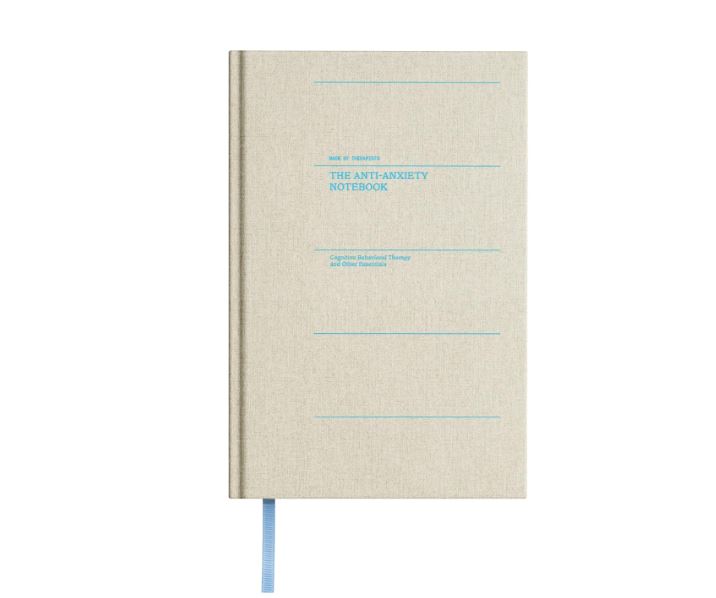10 Effective Stress Management Techniques for Dealing with Anxiety
Are you feeling overwhelmed by anxiety and stress? You’re not alone. In today’s fast-paced world, it’s common to experience feelings of anxiety and stress. The good news is, there are effective techniques you can use to manage and reduce your stress levels. In this article, we will explore 10 proven strategies that can help you deal with anxiety and improve your overall well-being. From mindfulness practices to physical exercise, these techniques are designed to empower you to take control of your mental health and live a more balanced life.
Table of Contents
Mindfulness Techniques
Practice deep breathing exercises
One effective way to reduce stress and anxiety is to practice deep breathing exercises. By taking slow, deep breaths, you can activate your body’s relaxation response and calm your mind. Try inhaling deeply through your nose, holding your breath for a few seconds, and then exhaling slowly through your mouth. Repeat this process several times to help bring your focus back to the present moment and alleviate feelings of anxiety.
Meditate regularly
Meditation is another powerful mindfulness technique that can help manage stress and anxiety. By setting aside just a few minutes each day to meditate, you can quiet your mind, increase self-awareness, and promote a sense of peace and relaxation. Find a quiet space, close your eyes, and focus on your breath or a calming mantra. Allow any negative thoughts or worries to pass through your mind without judgment, and return your attention to the present moment.
Engage in mindful activities
Incorporating mindful activities into your daily routine can also help reduce stress and anxiety. Activities such as yoga, tai chi, or mindful walking can help you connect with your body and breath, increase awareness of your emotions, and promote a sense of calm and relaxation. Choose activities that resonate with you and make time for them regularly to experience the benefits of mindfulness in managing anxiety.
Physical Activities
Incorporating physical activities into your daily routine can be highly beneficial for managing stress and anxiety. Here are some effective techniques:
Exercise regularly
Regular exercise has been shown to reduce stress levels and improve overall mental well-being. Whether it’s going for a run, hitting the gym, or taking a fitness class, finding a form of exercise that you enjoy can help release endorphins and reduce feelings of anxiety.
Yoga and stretching
Practicing yoga and stretching exercises can help relax both the body and mind. Yoga focuses on breathing techniques and mindfulness, which can help calm the nervous system and reduce stress levels. Even just a few minutes of stretching each day can help release tension in the body.
Take regular walks
Going for a walk outdoors can be a great way to clear your mind and reduce feelings of anxiety. The fresh air and change of scenery can help shift your perspective and provide a sense of calm. Try to incorporate short walks into your daily routine, whether it’s during your lunch break or after dinner.
Stress Management Techniques: Healthy Lifestyle Choices
Living a healthy lifestyle can significantly impact your ability to manage stress and anxiety. Here are some key healthy lifestyle choices to consider:
Maintain a balanced diet
Eating a well-balanced diet rich in fruits, vegetables, whole grains, and lean proteins can help support your overall health and reduce stress levels. Avoiding processed foods and excessive sugar can also help stabilize your mood and energy levels.
Get enough sleep
Adequate sleep is essential for managing stress and anxiety. Aim for 7-9 hours of quality sleep each night to allow your body and mind to rest and recharge. Establishing a bedtime routine and creating a relaxing sleep environment can help improve your sleep quality.
Limit caffeine and alcohol intake
While a cup of coffee or glass of wine may provide temporary relief, excessive caffeine and alcohol consumption can actually worsen anxiety symptoms. Limit your intake of these substances, especially in the evening, to promote better sleep and reduce overall stress levels.
Social Support
When dealing with anxiety and stress, having a strong social support system can make a significant difference in your ability to cope. Here are some ways you can utilize social support to help manage your anxiety:
Talk to friends and family
One of the simplest and most effective ways to manage stress is to talk to someone you trust. Sharing your thoughts and feelings with friends and family members can help you feel supported and less alone in your struggles. They may offer a different perspective on your situation or simply provide a listening ear, which can be incredibly comforting.
Join a support group
Joining a support group for individuals dealing with anxiety can be a great way to connect with others who are going through similar experiences. Being part of a supportive community can help you feel understood and validated, and you may pick up useful coping strategies from other group members. Many support groups also offer a safe space to share your feelings and receive encouragement from others.
Seek professional help if needed
If your anxiety is severely impacting your daily life and relationships, it may be beneficial to seek help from a mental health professional. A therapist or counselor can provide you with tools and techniques to better manage your stress, as well as offer guidance on how to navigate challenging situations. Don’t hesitate to reach out for professional help if you feel overwhelmed or unable to cope on your own.
Time Management Strategies
In order to effectively manage stress and anxiety, it is essential to implement time management strategies into your daily routine. By prioritizing tasks, delegating responsibilities, and taking breaks, you can create a more balanced and organized lifestyle that will help reduce feelings of overwhelm and anxiety.
Prioritize tasks
One of the most important time management strategies for dealing with anxiety is learning how to prioritize tasks. By identifying the most important and urgent tasks on your to-do list, you can focus your energy and attention on completing them first. This can help prevent feelings of being overwhelmed by a long list of tasks and can provide a sense of accomplishment as you check off each item.
Delegate responsibilities
Another effective time management strategy for reducing stress and anxiety is learning how to delegate responsibilities. It is important to recognize that you do not have to do everything yourself and that it is okay to ask for help when needed. By delegating tasks to others who are capable and willing to assist, you can free up valuable time and mental energy to focus on more pressing matters.
Take breaks and rest
Lastly, it is crucial to incorporate regular breaks and rest periods into your daily schedule in order to prevent burnout and reduce feelings of stress and anxiety. Taking short breaks throughout the day can help refresh your mind and body, allowing you to return to tasks with renewed focus and energy. Additionally, getting an adequate amount of rest each night is essential for overall well-being and can help improve your ability to cope with stress and anxiety.
Final Thoughts:
Managing stress and anxiety is crucial for maintaining overall well-being and mental health. By incorporating these 10 effective techniques into your daily routine, you can begin to take control of your stress levels and reduce feelings of anxiety. Remember, it’s important to prioritize self-care and seek support from loved ones or mental health professionals when needed. With dedication and practice, you can develop a personalized stress management plan that works best for you. Start implementing these techniques today and take the first step towards a healthier, happier life.
FAQs:
What is stress management?
Stress management involves techniques and strategies to cope with and reduce stress levels, promoting better mental and emotional well-being.
What are the common signs of anxiety?
Common signs of anxiety include excessive worry, restlessness, fatigue, difficulty concentrating, irritability, muscle tension, and sleep disturbances.
Why is it important to manage stress and anxiety?
Managing stress and anxiety is crucial for maintaining overall health and preventing related issues such as depression, cardiovascular problems, and impaired immune function.
What are some natural ways to manage stress and anxiety?
Natural stress management techniques include deep breathing exercises, mindfulness meditation, physical activity, spending time in nature, and maintaining a healthy diet.
How can I incorporate stress management techniques into my daily routine?
You can incorporate stress management techniques into your daily routine by scheduling regular relaxation breaks, prioritizing self-care activities, and practicing mindfulness throughout the day.
Are there any specific stress management techniques for the workplace?
Yes, workplace stress management techniques include setting boundaries, organizing tasks effectively, practicing time management, and seeking support from colleagues or supervisors.
Can stress management techniques help improve sleep quality?
Yes, stress management techniques such as relaxation exercises and creating a calming bedtime routine can help improve sleep quality by reducing anxiety and promoting relaxation.
When should I seek professional help for managing stress and anxiety?
If stress and anxiety significantly interfere with your daily life, it’s important to seek professional help from a therapist or counselor who can provide personalized treatment and support.
How long does it take to see results from stress management techniques?
The time it takes to see results from stress management techniques varies for each individual. Consistent practice and patience are key to experiencing long-term benefits.
Are there any resources available for learning more about stress management?
Yes, there are numerous resources available, including books, online articles, workshops, and therapy sessions, that can provide valuable information and support for managing stress and anxiety effectively.







